Top judge says the law is now in a ‘mess’ after his former colleagues quashed Gerry Adams’ convictions
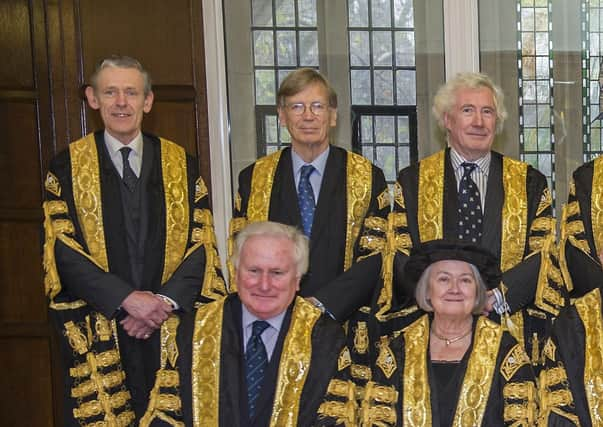

Lord Sumption, who served on the Supreme Court until 2018, has issued a devastating assessment of his former judicial colleagues, who quashed Mr Adams’ 1970s convictions.
The retired judge, one of Britain’s most respected legal voices, said that the UK’s highest court has left “the law in a shapeless mess,” and opened the door to “countless” claims for damages.
Advertisement
Hide AdAdvertisement
Hide AdLord Sumption was implicitly scathing of Lord Kerr, a former lord chief justice of Northern Ireland who was late elevated to the highest court, and in whose name the Supreme Court ruling was issued.
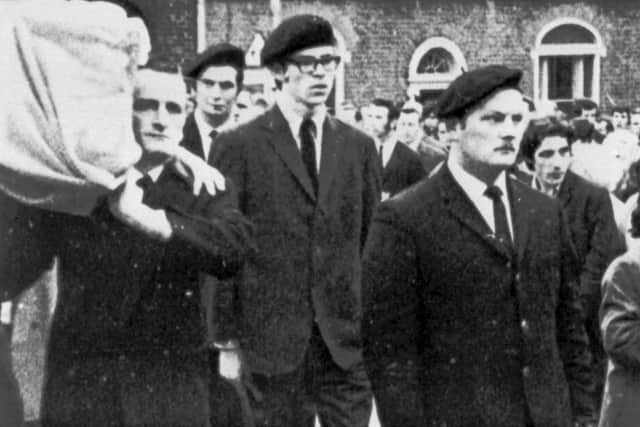

“The law cannot remain in the state in which Lord Kerr and his colleagues have left it,” Lord Sumption said.
It is the latest denunciation of the judgment in May, in which the Supreme Court said that Mr Adams’ internment in 1973 had not been considered by the then Northern Ireland secretary, William Whitelaw and thus was unlawful.
This meant that the former Sinn Féin president won his appeal to overturn two convictions for attempting to escape the Maze internment camp.
Advertisement
Hide AdAdvertisement
Hide AdThe ruling caused astonishment across the political and legal worlds, because legislation that brought in internment, as terrorist violence in Northern Ireland was escalating in the early 1970s, specifically allowed for detention to be signed by a junior minister.
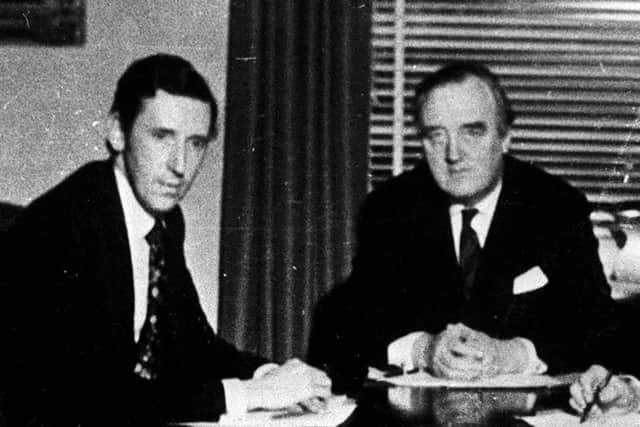

The Supreme Court over-turned a previous unanimous ruling of the Northern Ireland Appeal Court, led by Sir Declan Morgan, rejecting the Adams bid to have his convictions quashed.
After the top court’s ruling in May, dozens of internees are said to be planning to sue over their detention.
Last month a former government minister in Northern Ireland at the time of Mr Adams’ internment flatly contradicted the reasoning of the UK’s highest court in the case (see link below).
Advertisement
Hide AdAdvertisement
Hide AdLord Howell, who as David Howell was junior to Mr Whitelaw in 1973, called for an urgent change in the law to make clear the plain intention of Parliament when it legalised internment.
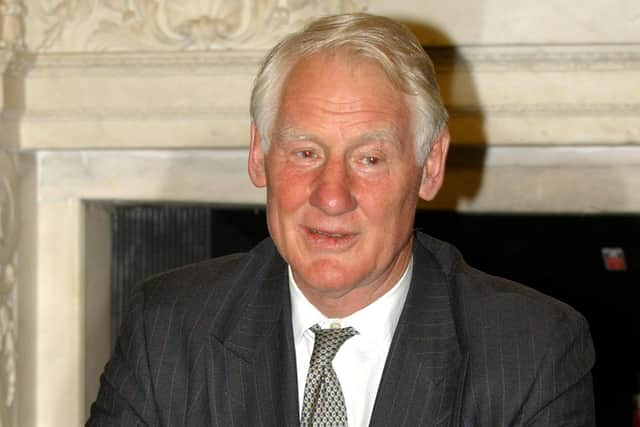

The former head of the civil service Lord Butler and the legal experts Professor Richard Ekins (see link below) and Sir Stephen Laws have called for the same.
The case is controversial because Article 4 of the Detention of Terrorist (Northern Ireland) Order 1972 provided that a custody order must be signed by a secretary of state or junior minister.
Lord Sumption, writing in The Times, has criticised his former Supreme Court colleagues Lord Kerr and four fellow judges, when they reasoned that Article 4 made clear that Parliament intended to require the secretary of state’s personal involvement in each internment order.
Advertisement
Hide AdAdvertisement
Hide AdLord Sumption said: “This, thought Lord Kerr of Tonaghmore, who delivered the only judgment, meant that the secretary of state must consider the order, while the signature could be that of any other designated person.


“This is bizarre. It means that the only purpose of allowing so august a person as a minister of state or an undersecretary to sign was to spare the secretary of state the labour of applying his pen to the document once he had considered it.”
This interpretation shattered the Carltona principle, that a minister’s powers can be exercised by his officials.
“The business of government is too vast to be conducted on any other basis, and has been for at least a century and a half,” wrote Lord Sumption.
Advertisement
Hide AdAdvertisement
Hide AdNoting that only Parliament is a higher authority than the Supreme Court, the lord said that the court’s “decisions should be clear” and that it should “reflect a sound understanding of how the world in general and the government in particular, works”.
Yet in the Gerry Adams verdict “its ambit is unclear and its reasoning unworldly, cursory and obscure. For a court of final appeal, there is no greater sin than this”.
Lord Sumption also dismissed the argument that interning someone was so momentous a step as to require a cabinet minister’s personal involvement each time. “Most governmental decisions are momentous to someone,” he wrote. “Momentousness is not a coherent legal principle.”
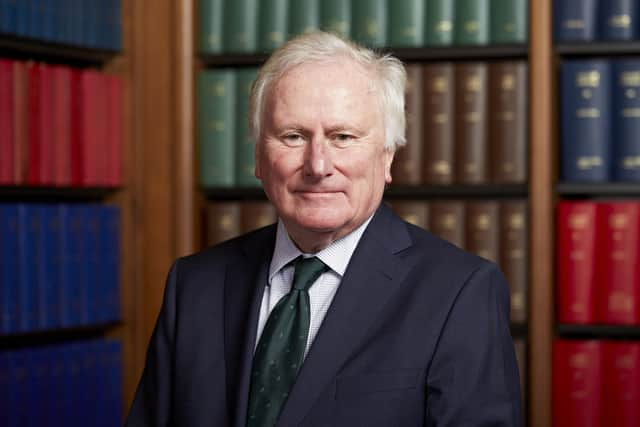

He said that the impact of the Supreme Court ruling is “bad enough” for future government decisions which cannot all receive the attention of a secretary of state, let alone the “hundreds of thousands” of past decisions by junior ministers that could now be subject to judicial review.
Advertisement
Hide AdAdvertisement
Hide AdAcknowledging that changing the law to mitigate the impact of the Gerry Adams ruling will not be easy, having human rights implications, he thinks that the judgment is so flawed that “these difficulties will have to be overcome”.
Professor Ekins, who has a chair in constitutional law at the University of Oxford, in May wrote a paper for the think tank Policy Exchange, in which he said: “The government may have to pay considerable sums to those detained for suspected involvement in terrorism. This is not a good state of affairs.
“The government should act swiftly, proposing legislation to make clear that [custody orders] made by a minister of state or under secretary of state were lawful.
“This would reverse the effect of the Supreme Court’s judgment, but would not remove from Adams any order that he won from the court itself.”
Advertisement
Hide AdAdvertisement
Hide Ad• See Morning View: London must speak up about the ongoing victories for republicans over the legacy of the Troubles
• Other reactions to the Supreme Court ruling below
• Lord Howell: After the Gerry Adams ruling, Parliament must act to reaffirm its clear, obvious and original intention on internment orders
• Prof Ekins: A summary of the Policy Exchange paper
• Trevor Ringland: Supreme Court ruling on Adams walked on graves of judges murdered by IRA
• Jeffrey Dudgeon: Supreme Court ruling on Adams didn’t reflect violent context of the time
Advertisement
Hide AdAdvertisement
Hide Ad• Brian John Spencer: If we are to stop the rewriting of history, we need to say what IRA did during internment
• Kenny Donaldson: Victims of terror are dismayed by the Supreme Court ruling
Advertisement
Hide AdAdvertisement
Hide Ad• Morning View: Lord Howell’s paper reiterates need for MPs to make clear the legal position on internment
——— ———
A message from the Editor:
Thank you for reading this story on our website. While I have your attention, I also have an important request to make of you.
Advertisement
Hide AdAdvertisement
Hide AdWith the coronavirus lockdown having a major impact on many of our advertisers - and consequently the revenue we receive - we are more reliant than ever on you taking out a digital subscription.
Subscribe to newsletter.co.uk and enjoy unlimited access to the best Northern Ireland and UK news and information online and on our app. With a digital subscription, you can read more than 5 articles, see fewer ads, enjoy faster load times, and get access to exclusive newsletters and content. Visit https://www.newsletter.co.uk/subscriptions now to sign up.
Our journalism costs money and we rely on advertising, print and digital revenues to help to support them. By supporting us, we are able to support you in providing trusted, fact-checked content for this website.
Alistair Bushe
Editor